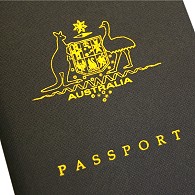Sydney
18 September 2009
 Australia is revising controversial citizenship tests, to make sure applicants are more aware of their rights and responsibilities rather than examine their general knowledge about sports and culture.
Australia is revising controversial citizenship tests, to make sure applicants are more aware of their rights and responsibilities rather than examine their general knowledge about sports and culture. The government wants to make the tests more helpful for prospective citizens settling in to life in their adopted country.
In the new version of the test, to be rolled out October 19, there will more questions about gender equality, compulsory voting and the Australian legal system.
In unveiling the test this week, Immigration Minister Chris Evans, who was born in Britain, says the amendments will help immigrants better understand their responsibilities to the community.
Evans and many immigrant activists think questions on the current test about famous sports personalities and explorers are irrelevant.
The country on Thursday celebrated Citizenship Day and to mark the occasion 4,000 people were sworn in as new Australians.
Among them was China-born opera singer Sharon Zai, who gave up her Chinese citizenship to become an Australian.
"I would love to have both but because I have been in Australia for six years and I feel very, very involved with this Australian life and I love to live here forever," she said.
Critics say the citizenship tests are a waste of money, do nothing to help newcomers integrate into society and discriminate against those from a non-English speaking background.
Migrants must pass the test to gain citizenship.
Under the proposed changes, those taking the test will have to answer 20 multiple-choice questions in English and the passing grade will rise from 60 percent to 75.
The tests were introduced in 2007 and were intended to enhance social cohesion. Recent studies have found that some prospective citizens had been deterred from applying for citizenship, wrongly fearing they would be deported if they failed the test.
Applicants can take the exam as many times as they like until they pass.